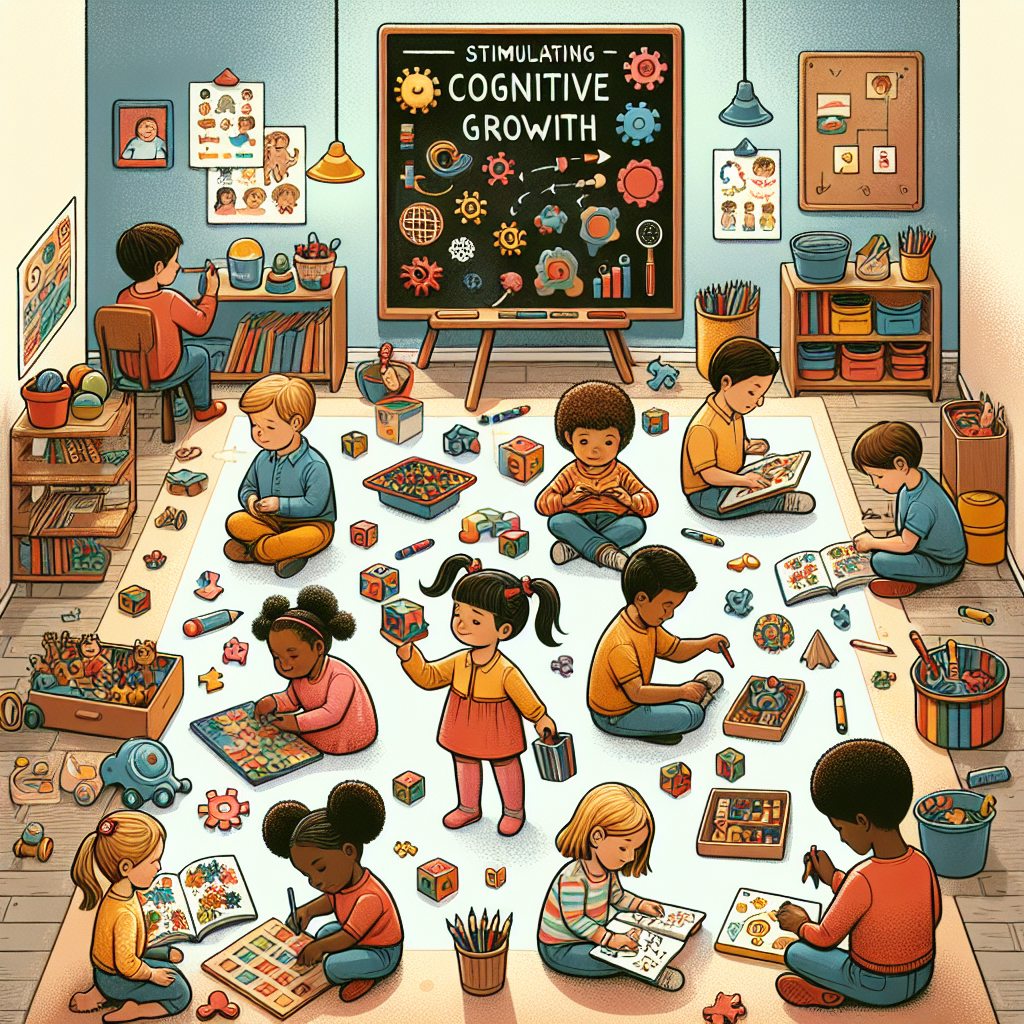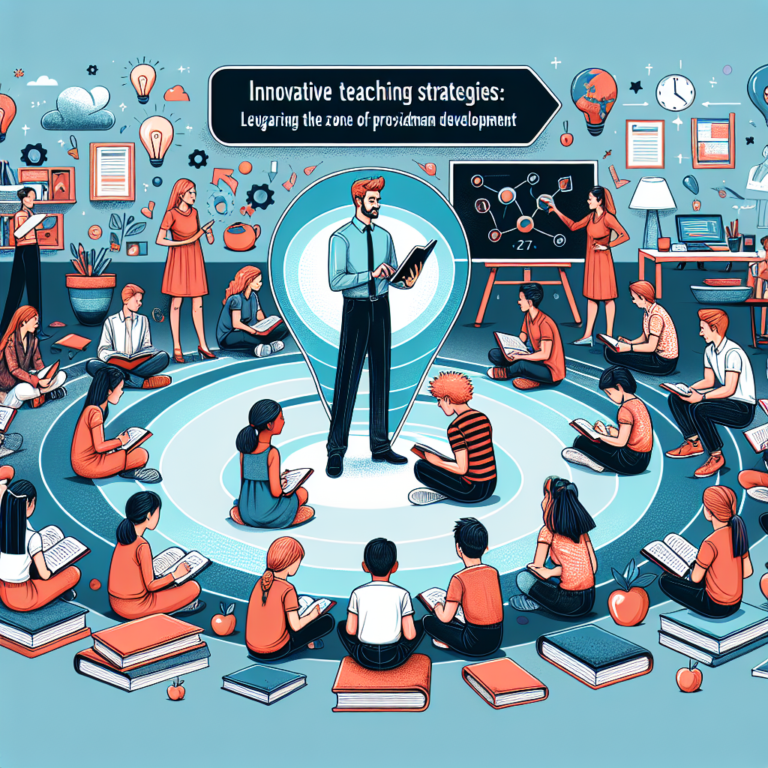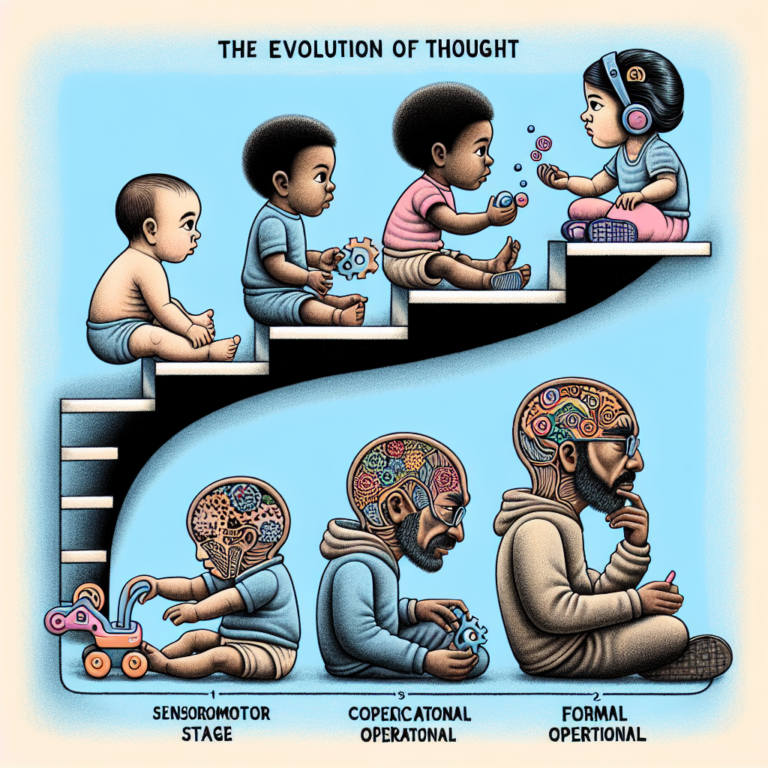
Introduction
In the dynamic landscape of child development, the age-old adage "children learn through play" is often emphasized. But what if I told you that everyday activities also play a pivotal role in fostering cognitive growth? This article dives deep into Beyond Play: How Everyday Activities Foster Cognitive Growth in Children, unveiling the extraordinary potential of seemingly mundane tasks. From cooking to cleaning, and from shopping to gardening, these daily routines can enhance a child’s cognitive abilities in ways that mirror the benefits of structured play. Let’s explore how enriching these everyday experiences can lead to profound developmental advantages for our little ones.
Understanding Cognitive Growth
Before we delve into specific activities, it’s crucial to grasp what cognitive growth entails. Cognitive growth refers to the progression of a child’s ability to think, learn, and solve problems. It encompasses various skills, including memory, reasoning, and understanding. Here’s a quick overview in table format:
| Cognitive Skill | Description |
|---|---|
| Memory | Ability to retain and recall information |
| Reasoning | Ability to think logically and make decisions |
| Problem-Solving | Ability to find solutions to challenges |
| Language Development | Ability to communicate effectively |
| Spatial Awareness | Understanding physical spaces and dimensions |
Understanding these aspects helps caregivers and educators appreciate the value of everyday activities, transcending traditional definitions of learning.
The Power of Everyday Activities
Cooking: A Recipe for Cognitive Development
Cooking may seem merely a household chore, but it’s an excellent way to stimulate various cognitive skills in children. When children assist in the kitchen, they engage in a multitude of processes that require judgment, sequencing, and even mathematical skills. For example, measuring ingredients teaches them about quantities and ratios.
Case Study: The Family Kitchen Experiment
In a study involving families who included their children in regular cooking sessions, researchers found that children displayed improved problem-solving abilities and better engagement in their schooling. Parents noted that their children became more curious about food science, leading to a greater interest in nutrition and health.
Cleaning: Order in Chaos
Cleaning may not be the most glamorous task, but it offers rich cognitive benefits. Organizing toys or clothes requires categorization, an essential cognitive skill. This activity helps children understand order and structure, foundational elements of logical reasoning.
Case Study: The Tidiness Initiative
A project focusing on homes where children participated in weekly cleaning rituals revealed a correlation between tidiness habits and improved concentration levels. Children actively engaged in cleaning were shown to have better focus during lessons, suggesting that organized environments foster organized minds.
Shopping: Real-World Math Practice
Shopping trips offer practical applications of mathematics and critical thinking. Whether counting items, comparing prices, or making budgeting decisions, children learn financial literacy and problem-solving skills.
Case Study: The Shopping Challenge
An initiative where children accompanied their parents to grocery stores highlighted the cognitive gains from such experiences. Participating children were able to perform basic arithmetic more efficiently after regular shopping trips, showcasing a real-world application of math.
Gardening: Nature’s Classroom
Gardening is not just about nurturing plants; it’s a holistic approach to learning that encompasses science, responsibility, and patience. Children learn to observe changes, predict outcomes, and care for living organisms.
Case Study: The Green Thumb Project
In a community garden initiative, children involved in planting and caring for gardens not only learned about biology but also exhibited enhanced emotional intelligence and resilience, demonstrating how nurturing living things fosters empathy and critical thinking.
Tables of Impact: Cognitive Skills Enhanced by Activities
| Activity | Cognitive Skills Enhanced |
|---|---|
| Cooking | Sequencing, Mathematics, Critical Thinking |
| Cleaning | Organization, Focus, Logical Reasoning |
| Shopping | Arithmetic, Decision-Making, Financial Literacy |
| Gardening | Observation, Empathy, Patience |
Integrating Activities into Daily Routines
Creating a Learning Environment
Parents and educators play a crucial role in transforming everyday tasks into cognitive growth opportunities. This transformation begins with a supportive environment that encourages exploration and participation.
Strategies for Engagement
- Make It Fun: Turn chores into games. For example, use a timer for cleaning tasks to create a sense of urgency and excitement.
- Encourage Involvement: Ask children to contribute ideas for meals or organize their spaces. This ownership enhances their commitment and learning.
- Seek Opportunities for Connection: Discuss what you’re doing during everyday tasks. This dialogue reinforces language skills and comprehension.
Conclusion
In closing, the narrative around child development must extend beyond active play. Beyond Play: How Everyday Activities Foster Cognitive Growth in Children reminds us that every moment is a learning opportunity. By integrating everyday tasks into children’s lives, we not only equip them with essential cognitive skills but also reinforce their confidence, curiosity, and creativity. Let’s empower the next generation to see the education potential in every activity, turning daily chores into profound learning experiences.
FAQs
1. How do everyday activities compare to play in fostering cognitive growth?
Everyday activities engage children in practical problem-solving and real-world applications, complementing the imaginative and social aspects of play.
2. What age should children start participating in these activities?
Children can start helping with age-appropriate tasks as soon as they are capable, typically around the ages of 2-3 years.
3. Are there specific activities that are better for certain cognitive skills?
Yes, different activities foster various skills. For instance, cooking enhances mathematical skills, while gardening nurtures emotional intelligence.
4. How can I encourage my child to engage in these activities?
Incorporate fun elements, set a good example, and celebrate their contributions to make these tasks enjoyable.
5. Can everyday activities impact a child’s academic performance?
Absolutely! Engaging in varied tasks can enhance concentration, critical thinking, and problem-solving skills, all of which are vital for academic success.
In delving into the realm of cognitive growth, it becomes evident that beyond play, the everyday activities we often overlook can provide enriching experiences that profoundly influence our children’s developmental journeys. Embrace these opportunities, and watch your children flourish!














